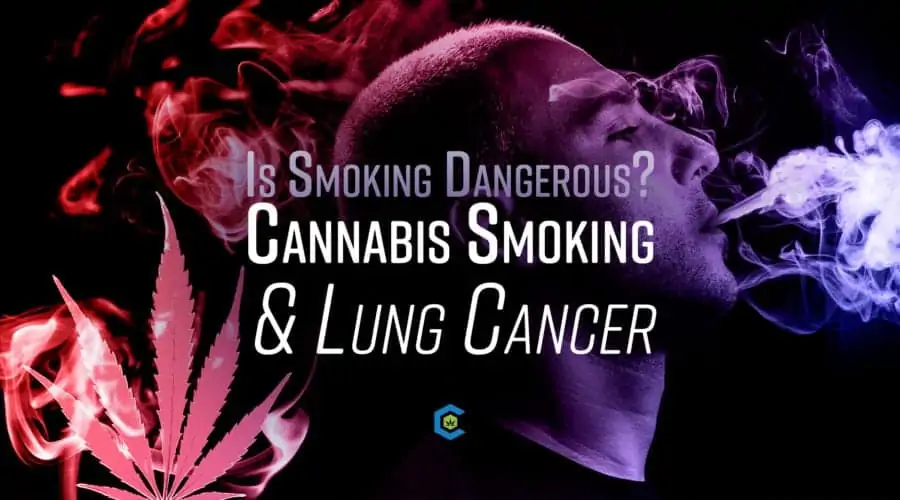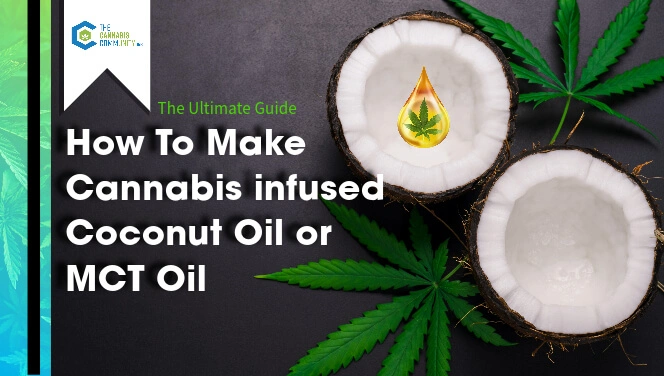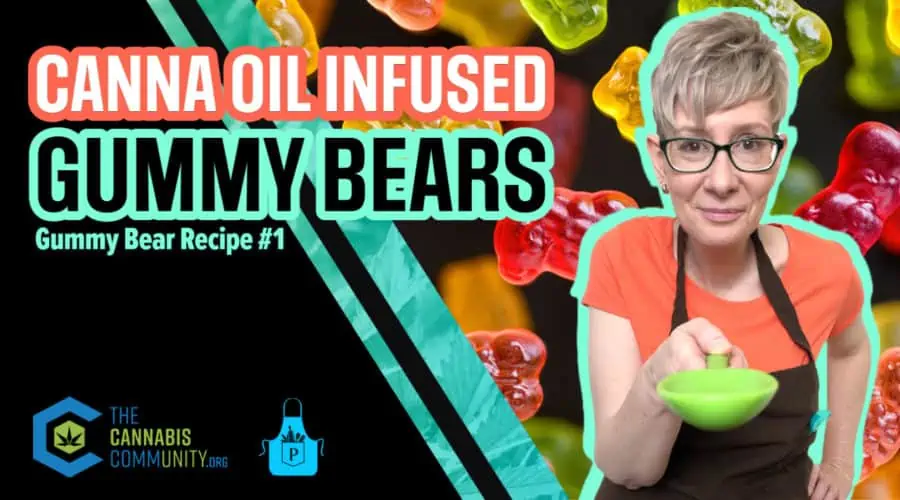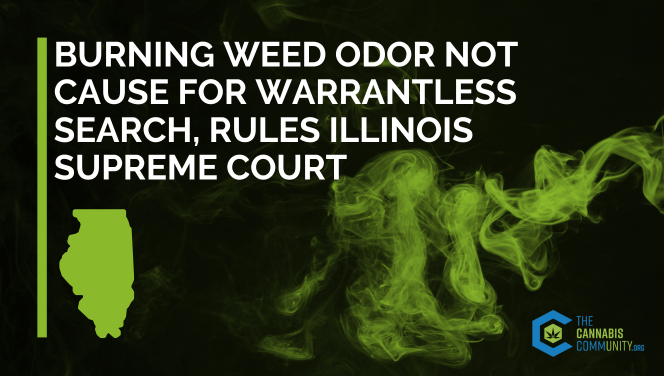Is Smoking Cannabis Dangerous? A Scientific Review of Cannabis Smoking & Lung Cancer with Comparisons to Tobacco Smoking
Table of Contents

As it Gains Popularity, Skeptics Raise Risks of Smoking Cannabis
As cannabis use continues to be the most widely used illicit drug in the United States, social and epidemiological perceptions about the plant continue to shift and evolve as more people support legalization 1.
A 2018 Pew research poll indicates 6 out of 10 Americans support legalization, with further studies indicating there is a shift towards favoring the “pro-legalization economic and criminal justice-oriented arguments” over negative implications on motor vehicle accidents and youth health 2,3.
One area of concern, especially among many in healthcare, is the common and traditional practice of smoking cannabis. We know tobacco smoking causes cancer—but what about cannabis smoking?
Smoke Inhalation & Associated Toxicity: What Does the Science Say?
Inhalation of cannabis smoke has naturally been a point of contention in the medical community and the risks are often compared with tobacco.
But what does the actual science and epidemiological data tell us? Is smoking cannabis really dangerous for you and how does it compare to smoking tobacco?
The findings might surprise you! This article will delve into the debate and enrich the reader with the latest and most current research into the health implications of smoking cannabis.
Not All Smoke is Created Equal (And Neither Are All Scientific Studies)
Borne of an illicit enterprise that was once inundated with false, anti-cannabis propaganda, it is imperative that we as a community take the care and effort to set the record straight to the best of our ability wherever the evidence allows us.
It has been well established that cannabis and tobacco are often used and misused together. We have also found that early studies investigating the harms of cannabis smoke failed to take this into account 4.
Clearly, this isn’t a well controlled study design to measure how harmful cannabis smoke can be since we already know that tobacco smoke is associated with the progression of several cancers, including, but not limited to, liver, bladder, kidney and lung cancer 5.
More recent studies have investigated both independent use of both tobacco and cannabis as well as concomitant use and these analyses should be used to cultivate a more complete picture about this topic.
Fun fact, however, recent data shows regular cannabis users smoke less cigarettes on average than tobacco smokers alone 6.
Smoking Tobacco Kills, Smoking Cannabis Doesn’t
We know without a doubt smoking tobacco is deadly. In fact, “According to the CDC, tobacco kills more people worldwide than HIV, tuberculosis and malaria combined” 7,8.
Fortunately (and curiously), the same cannot be even close to definitively stated for cannabis, which has repeatedly failed to demonstrate and epidemiological link between regular smoking and the development of lung disease (even upon habitual/long-term use) 9–11.
For this primary reason alone, smoking tobacco and smoking cannabis must be investigated separately and their sociological impact considered independently.
Cannabis Smoke Still Contains Harmful Chemicals
It is critical to note that while no firm link has been established between cannabis smoking and lung disease, that does not mean there definitely isn’t one.
Why is that? Because the smoke still contains several harmful chemicals, such as “ammonia, hydrogen cyanide, nitric oxide, and aromatic amines” 12,13. Chronic exposure to these compounds in smoke is known to cause bronchitis 12,13.
The reason why the presence of these chemicals does not result an epidemiological translation of lung disease in the population constantly smoking cannabis is still a mystery.
Some have theorized it is the potential anti-tumorgenic, anti-inflammatory and/or bronchodilatory properties of the cannabis plant that may contribute to the prevention of lung disease development 14,15.
What About Edibles, Oils & Concentrate? Why Smoke My Medicine At All?
It’s true; there are a seemingly endless variety of ways to ingest cannabis today from tinctures to tropicals, edibles to vaporizers and more. If smoking carries potential risks, why smoke it at all?
This is a fair question. However, there does exist fair arguments for the smoking of cannabis as well.
For instance, the rapid onset of effects, especially the anti-emetic effects, makes smoked cannabis a preference for chemotherapy patients who otherwise must deal with severe nausea.
Such patients have severe difficulty keeping down synthetic cannabinoid pills or even edibles and have shown benefit from smoking the herb 16.
A well-known prospective, placebo-controlled 2013 Crohn’s study also demonstrated that smoking cannabis induced a “clinical response” in patients with the disease 17.
While the jury may still be out on the overall certainty of the risks and benefits of smoking cannabis, these tidbits of information are surely promising.
First, “Do No Harm”: Weighing the Pros and Cons of Cannabis Use
“Primum non nocere. This is the physician’s first rule: whatever treatment a physician prescribes to a patient—first, that treatment must not harm the patient” 18.
In the case of medical cannabis, weighing the potential adverse and harmful effects with its potential therapeutic benefit has been the primary challenge in incorporating it back into modern pharmacopeia.
Luckily, there is mounting clinical evidence that cannabis has powerful and versatile therapeutic benefits for various patients.
No medicine is perfect and necessary precautions and patient education about side effects and potential adverse affects are necessary as with any other medicine.
However, the fact of the matter is many physicians are certifying and recommending cannabis to patients across the country and across the globe.
Also, as previously mentioned, there exists many different ways to use cannabis so patients can help find a medication strategy that works best for them.
Closing Thoughts
Let’s be real for a second: repeatedly inhaling smoke of any kind certainly isn’t good for you in and of itself.
However, the composition of that smoke really matters when discussing potential risks and the development of respiratory pathologies as a result.
One thing is certain: smoking tobacco is much more dangerous (and categorically deadly) than smoking cannabis alone.
While this doesn’t mean smoking cannabis, especially regularly, is “safe” (remember that development of bronchitis has still been observed in regular smokers), it does mean that they should not be compared to or thought of as equal or even similar to that of tobacco smoking.
Hopefully, further research over time will help elucidate various unknown mechanisms by which cannabis affects respiratory health so we can better understand the risks (and benefits) of smoking medical cannabis!
To Read More About Cannabis Smoke & Lung Health, Check Out “Not All Smoke Is Created Equal: Cannabis Smoke & the Lung Cancer Paradox”
Enjoyed this article? You may be interested in reading…
Cannabis Basics Textbook: A Fun Evidence-Based Journey Into Cannabinoid Science Fundamentals
How Can Cannabis Help With Epilepsy?
Get Your Medical Cannabis Card in Minutes
Enjoyed This Content? Read More:
-
How to Make Cannabis-Infused Coconut Oil or MCT Oil: Crockpot Recipes
In this guide, you’ll learn how to make cannabis-infused coconut oil or MCT oil, decarboxylate cannabis, or choose to infuse cannabis into any oil of your choice.
-
How to Make THC Gummy Bears with Canna Oil
This is a great no-fail recipe for beginners. The corn syrup in this recipe will help your gummy bears have that nice and chewy texture we’ve all come to love.
-
Burning Weed Odor Not Cause for Warrantless Search, Rules Illinois Supreme Court
A Landmark Case for IL Medical Cannabis Patient Protections On September 9th, the Illinois Supreme Court issued a major victory for cannabis consumers and patients, declaring that the aroma of burnt cannabis is insufficient probable cause for a warrantless search. Illinois has long been at the forefront of the fight for plant medicine. Medical patients…
-
GMO Cookies: A Strain Review of Its Potent Aroma and Powerful Effects
GMO Cookies is a popular cannabis strain for homegrow. Here’s what you need to know to get started with these seeds.
-
Cherry Pie Cannabis Strain: A Sweet Treat with Potent Effects
Cherry Pie is a popular cannabis strain for homegrow. Here’s what you need to know to get started with these seeds.
1. 2015 National Survey on Drug Use and Health: Detailed Tables. 3263
2. 62% of Americans favor legalizing marijuana | Pew Research Center. Available at: https://www.pewresearch.org/fact-tank/2018/10/08/americans-support-marijuana-legalization/. (Accessed: 12th May 2019)
3. McGinty, E. E., Niederdeppe, J., Heley, K. & Barry, C. L. Public perceptions of arguments supporting and opposing recreational marijuana legalization. Prev. Med. 99, 80–86 (2017).
4. Agrawal, A., Budney, A. J. & Lynskey, M. T. The Co-occurring Use and Misuse of Cannabis and Tobacco: A Review. Addict. Abingdon Engl. 107, 1221–1233 (2012).
5. Jacob, L., Freyn, M., Kalder, M., Dinas, K. & Kostev, K. Impact of tobacco smoking on the risk of developing 25 different cancers in the UK: a retrospective study of 422,010 patients followed for up to 30 years. Oncotarget 9, 17420–17429 (2018).
6. Effects of cannabis on lung function: a population-based cohort study | European Respiratory Society. Available at: https://erj.ersjournals.com/content/35/1/42. (Accessed: 12th May 2019)
7. Actual causes of death in the United States. – PubMed – NCBI. Available at: https://www.ncbi.nlm.nih.gov/pubmed/8411605. (Accessed: 12th May 2019)
8. Centers for Disease Control and Prevention (CDC). Smoking-attributable mortality, years of potential life lost, and productivity losses–United States, 2000-2004. MMWR Morb. Mortal. Wkly. Rep. 57, 1226–1228 (2008).
9. Robert Melamede. Cannabis and tobacco smoke are not equally carcinogenic. Harm. Reduct. J. 2, 21 (2005).
10. Huang, Y.-H. J. et al. An epidemiologic review of marijuana and cancer: an update. Cancer Epidemiol. Biomark. Prev. Publ. Am. Assoc. Cancer Res. Cosponsored Am. Soc. Prev. Oncol. 24, 15–31 (2015).
11. Zhang, L. R. et al. Cannabis smoking and lung cancer risk: Pooled analysis in the International Lung Cancer Consortium. Int. J. Cancer J. Int. Cancer 136, 894–903 (2015).
12. Repp, K. Marijuana and health: a comprehensive review of 20years of research. 58
13. Sachs, J., McGlade, E. & Yurgelun-Todd, D. Safety and Toxicology of Cannabinoids. Neurotherapeutics 12, 735–746 (2015).
14. Ribeiro, L. I. & Ind, P. W. Effect of cannabis smoking on lung function and respiratory symptoms: a structured literature review. NPJ Prim. Care Respir. Med. 26, 16071 (2016).
15. Chakravarti, B., Ravi, J. & Ganju, R. K. Cannabinoids as therapeutic agents in cancer: current status and future implications. Oncotarget 5, 5852–5872 (2014).
16. Parker, L. A., Rock, E. M. & Limebeer, C. L. Regulation of nausea and vomiting by cannabinoids. Br. J. Pharmacol. 163, 1411–1422 (2011).
17. Naftali, T. et al. Cannabis induces a clinical response in patients with Crohn’s disease: a prospective placebo-controlled study. Clin. Gastroenterol. Hepatol. Off. Clin. Pract. J. Am. Gastroenterol. Assoc. 11, 1276-1280.e1 (2013).
18. Marijuana and Medicine: Assessing the Science Base – PubMed – NCBI. Available at: https://www.ncbi.nlm.nih.gov/pubmed/25101425. (Accessed: 4th March 2019)








Pingback: Is Smoking Marijuana Dangerous? A Scientific Review Of Cannabis, Tobacco Smoking And Lung Cancer - News Portal by AfricaX
Pingback: Fumar maconha é perigoso? Uma revisão científica de cannabis, tabagismo e câncer de pulmão - Weederia